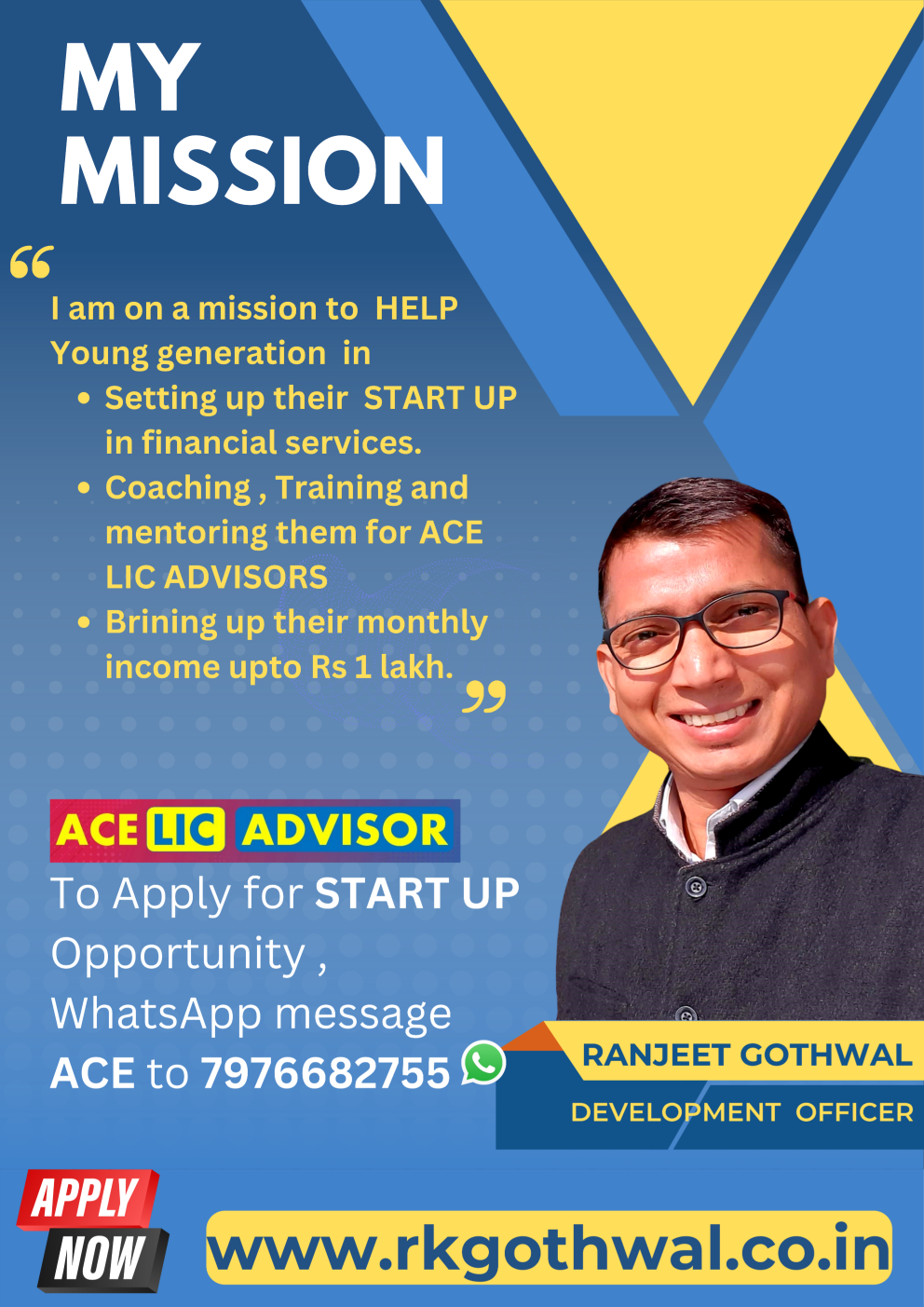There are no items in your cart
Add More
Add More
| Item Details | Price | ||
|---|---|---|---|

If You are a Life Insurance advisor or planning to join this profession you may face the same challenges as above .To overcome these challenges be part of my TEAM as ACE LIC ADVISOR

RANJEET KUMAR GOTHWAL
A Coach and mentor for LIC Advisors , Helping Gen Z and millennials to build their start-up .